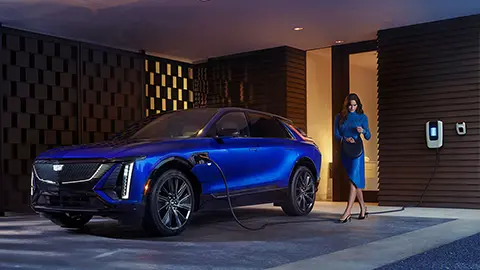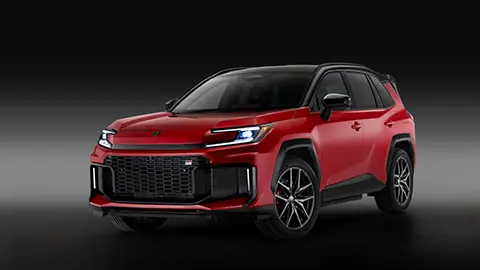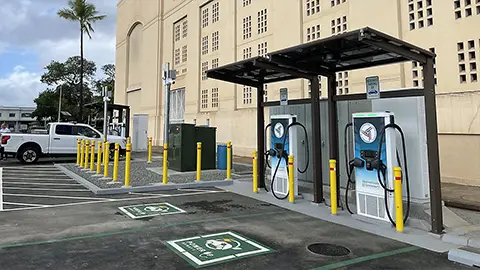The Holy Grail of EV Batteries
Solid-state batteries have been touted as the holy grail for electric cars, combining lighter weight, higher energy density, greater longevity, and much faster charging speeds. But like with many holy-grail technologies, it can sometimes seem like solid-state batteries are perpetually just over the horizon. Now, though, things are starting to get serious: electronics giant Samsung has just shown off an EV-specific solid-state oxide battery that claims to deliver 600 miles of range, along with all the other benefits of solid-state.

Lexus Launching Solid-State EVs in 2027
The announcement came at the SNE Battery Day 2024 Expo, a trade show in Seoul, South Korea, Samsung’s home country. Samsung, until now, has not been a major player in the EV battery space, even in Korea, where LG has taken the lead. But at the show, Samsung announced it was working with large automakers to incorporate its solid-state technology into the next generation of EVs. Indeed, Toyota and Samsung have agreed that they’ll start mass production of solid-state batteries starting in 2027 – with the first batteries destined for Lexus EVs.
Launching with Lexus makes sense, because at the moment, solid-state batteries cost a lot more to manufacture than the lithium-ion and lithium-iron-phosphate (LFP) batteries you’ll find in most of today’s EVs. In fact, solid-state batteries cost about three times as much as a lithium-ion battery with similar capacity does. The additional profit margins of a luxury vehicle will help cover the expense of the new tech until production ramps up and per-unit costs decrease.
Benefits of Solid-State Batteries
Still, the benefits of solid-state batteries for the first batch of Lexus drivers should be pretty amazing. They will weigh less than LFP or lithium-ion batteries of similar capacity, improving performance as well as efficiency. A more stable thermal balance, and no liquid electrolytes, makes them safer, especially in a collision.
And for a given weight, the batteries will be much more energy-dense, delivering about 500 watt-hours (or 0.5 kWh) per kilogram. That’s about double the energy density of today’s EV batteries – meaning that a battery of the same weight could deliver double the range on a charge, or up to 600 miles. The solid-state battery’s lifespan is estimated to be over 20 years, and charging speeds are promised to be higher, with a full charge coming in less than 10 minutes – approaching parity with pumping gasoline.
Charging Infrastructure Will Need Updates
Of course, those 10-minute charging times won’t be available using current EV chargers, the fastest of which can deliver about 400 kW of power. 600-kW or even faster chargers will need to be retrofitted – and even in China, where some 480 kW chargers are available, it isn’t exactly common. Ultra-fast charging stations are still few and far between, and quite expensive to use.
So the real question about solid-state batteries might not be how quickly they can be installed in the next generation of EVs that we buy – but how quickly the infrastructure can be upgraded to support them.
Conclusion
While some hurdles remain in terms of widespread adoption of solid-state batteries, Samsung’s latest announcement has us optimistic that the battery industry has cleared a big hurdle. When big tech companies invest in and demonstrate technology like this, it’s a sure sign they see business potential. 2027 can’t come soon enough.
















